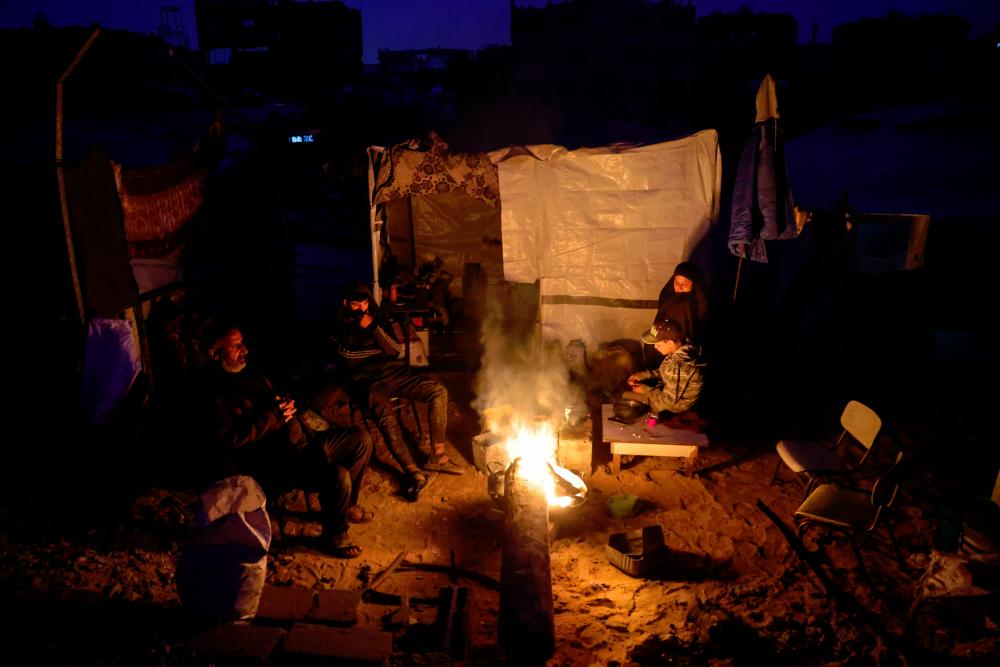GAZA CITY: For 500 days since an unprecedented Hamas attack on Israel triggered the Gaza Strip's deadliest war, Mohammed Abu Mursa has grappled with “humiliation, suffering and bloodshed” in his fight for survival.
Abu Mursa and his family have been displaced more than a dozen times since the war began, moving from place to place across the Palestinian territory in a desperate attempt to stay safe, he said.
“It’s been 500 days of humiliation, suffering and bloodshed,“ said the resident of northern Gaza, finally able to return home after a fragile ceasefire took hold on January 19.
“I just hope the ceasefire holds,“ he added.
“There is only destruction around us.”
Like the Abu Mursa family, nearly all of Gaza's 2.4 million residents have been displaced at least once during the war.
Within hours of the Hamas attack, which resulted in the deaths of 1,211 people, mostly civilians, according to an AFP tally of Israeli official figures, Israel launched a blistering offensive on Gaza.
More than 16 months later, vast swathes of the territory are in ruins.
The Israeli military campaign by land, air and sea has killed at least 48,284 people in Gaza, the majority of them civilians, according to the Hamas-run territory's health ministry, whose figures the UN considers reliable.
Khadija Hammou, 56, said that the 500 days since the war began have felt like “500 years”.
“There is no tent to shelter us, no water to drink or bathe in, no means of survival in Gaza,“ she told AFP.
“Everywhere we go... there is only suffering.”
To Hammou, the war has “revealed to the world that Israel is committing massacres and that our people are the occupied and the oppressed”.
'Tired'
Despite the ceasefire and the diplomatic efforts to extend it, Gazans are concerned that the violence could reignite.
“Our fear is that the war will resume” and the world will fail to stop Israel’s actions, said Ayman al-Jamali, 39, a resident of the Tal al-Hawa neighbourhood in Gaza City.
“The world watches the massacres unfold without doing anything,“ he said.
Jamali accused Israeli Prime Minister Benjamin Netanyahu of “seeking any opportunity to destroy Gaza”, which for years has been under a crippling Israeli-led blockade and, during the current war, a siege.
Earlier on Monday, Netanyahu said he was “committed” to a plan proposed by US President Donald Trump for his government to take control of Gaza and expel its inhabitants to neighbouring Egypt or Jordan.
The proposal, which experts say would violate international law, has triggered widespread outrage.
Later on Monday, Israel’s far-right Finance Minister Bezalel Smotrich said in a video statement that according to a plan currently in preparation “Gaza’s residents will be allowed to leave, but only in one direction -- with no possibility of return”.
“I’ve never travelled in my life, and I don’t intend to leave the country unless they kill us,“ said Jamali, who now lives in a tent he set up amid the rubble of his former home.
“My tent is a witness to Israel’s genocide.”
Exhausted by the war, Mohammed Skik, 47, fears his family may have to live in a tent for years to come.
“Enough with this destruction and humiliation... We are tired. I just hope our children can live like children in the rest of the world,“ he said.
The United Nations has said more than $53 billion will be required to rebuild Gaza and end the “humanitarian catastrophe” that has gripped the territory.









